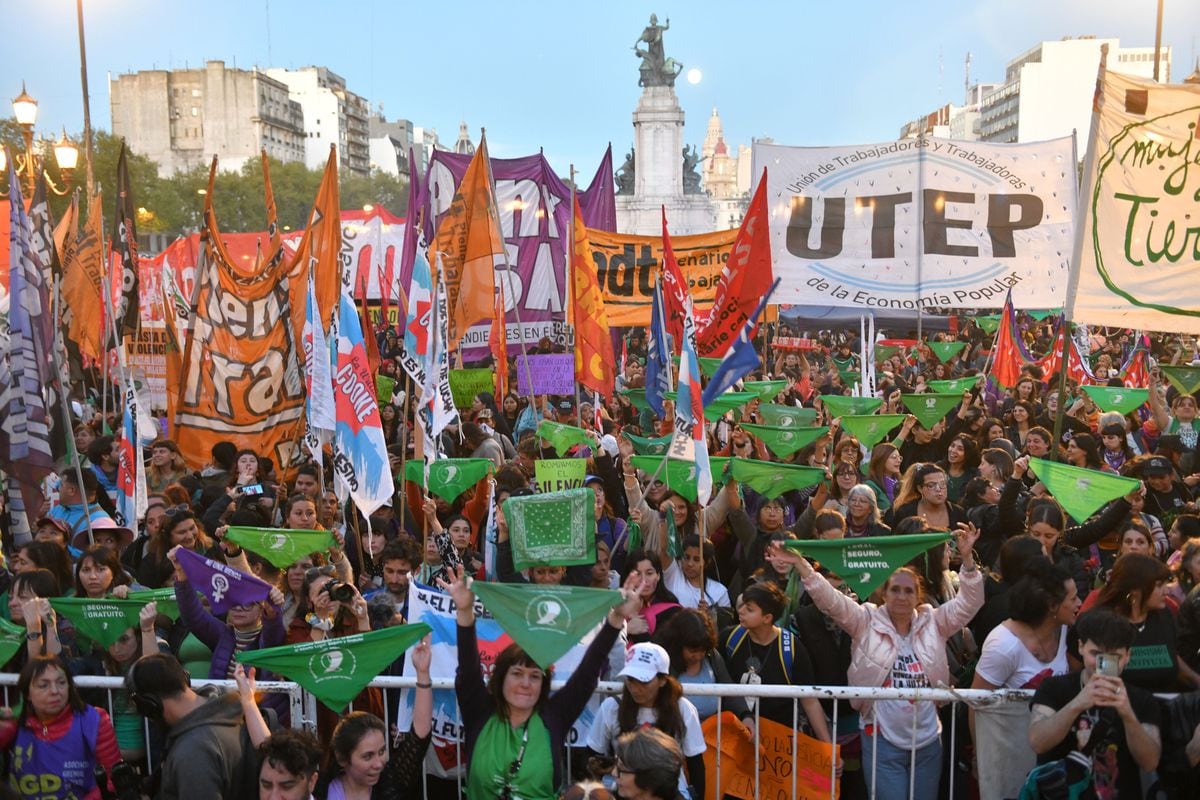This is how the pandemic impacted women, according to the UN 3:51
(CNN Spanish) -
On the International Day for the Elimination of Violence against Women, a single figure is enough to assess the problem: more than one in three women in the world has suffered physical or sexual violence during her lifetime. And this statistic is prior to the pandemic, which has only made the situation worse. To combat gender violence, it is key to learn to recognize it and know what you can do in a situation of violence, whether you are the victim or if you are part of their support network. However, is it possible to prevent violence against women?
CNN Español discussed this issue with Leah Tandeter, specialist in Eradication of Violence Against Women of the UN Women Regional Office for the Americas and the Caribbean, and with Ángel Manuel Turbi, Dr. in Psychology and Health Sciences for the Catholic University of Valencia "San Vicente Mártir".
Here, some keys to the conversation.
Early detection to prevent the pattern from repeating
The key to preventing young and adult men from developing violent behaviors is "guaranteeing lives free of violence for all girls and boys," Tandeter explains to CNN en Español.
"If from childhood we develop in a context of peace and security, both in the private space and in the public space, we considerably increase the possibility that these girls and boys do not reproduce violence later in their lives."
The Mirabal sisters faced one of the bloodiest tyrants in Latin America.
The day against violence against women honors their struggle
There is evidence that patterns of domestic violence are repeated from generation to generation. An investigation carried out by the Inter-American Development Bank (IDB) in 2017 concludes that "the possibility that an adult woman experiences physical violence by her partner is, on average, 12 percentage points higher if she witnessed physical violence perpetrated towards his mother". And this has not necessarily changed over the years: the IDB maintains that the risk that a woman who witnessed violence will be a victim remains, whether she was born in 1970 or 1990.
"The best way to avoid this repetition is the early detection (of violent situations) for early intervention. The sooner the minor receives help, the greater the probability of developing as a mentally healthy adult," Turbi explains to CNN en Español .
advertising
The song that seeks to eradicate the idea of the use of force 1:13
And this implies, in a situation, intervening quickly, whether the children are also victims of violence or are bystanders.
"Minor victims who have been exposed to these situations can develop psychopathology such as post-traumatic stress or other emotional trauma, it is important that they receive professional help, as well as providing relationships of help and trust with adults, working on self-concept and self-esteem, as well how to promote healthy relationships with the peer group, reducing risk factors and enhancing protection factors ", he explains.
The place of mixed sports and women in science
Part of the structural change that societies need to end violence against women and girls is an educational system "free of gender stereotypes," explains Tandeter.
On many occasions, the stories of women who broke barriers and made their way into spaces where men have traditionally been more visible, for example science, stand out because of what this means in terms of rights.
However, it is also linked to violence.
"Mixed sports activities and female leadership figures in the classroom in areas of science, technology, as well as in sports spaces, have shown a positive effect on boys who develop masculinities free of gender-based violence," says Tandeter.
Recognize the signs
Preventing does not mean in any way trying to control the behavior of the perpetrator.
"If there is a serious risk, it is best to move away, although you are not always prepared for it (fear, guilt or in many cases emotional dependencies). What is more than recommended is to look for a support network (family, friends of confidence) where to be able to verbalize the problem ".
It is important for women to know and feel that they are not alone.
It's not just the blow: 5 facts about how violence against women profoundly affects your mental health
However, it is vitally important to be able to detect the first signs of abuse, since if they are noticed and managed to verbalize them and act in response, some of the consequences of violence can be avoided.
Among these signs, based on the recommendations of the Government Delegation against Gender Violence, of the Government of Spain, the following stand out:
Ignore or despise your feelings frequently
Ridicules, insults, or despises women in general
Humiliates, yells, or insults you in private or public
Threatens to harm you or your family
Has he ever physically assaulted you
Isolates you from family and / or friends
Forced you to have sex against your will
He controls your money and makes the decisions for you
Does not allow you to work
Threaten to take away your daughters and sons in case of leaving it
Control the way you dress
You do not express your opinions freely for fear of their reaction
Check your mobile phone and social networks
You continually feel inferior or less than him
Show jealousy frequently
You have stopped going out with your circle of friends because he "doesn't like them"
These populations are vulnerable to domestic violence 2:51
How can men be allies in prevention?
"Men are almost always the perpetrators of violence against women and girls. According to studies carried out on the perpetration of violence, men are responsible for the vast majority of acts of violence committed both in Latin America and the Caribbean as in the world ", explains Tandeter.
Some figures put this reality in context.
According to a comparative study of 12 countries in the region, between 13.4% and 52.3% of women who have ever had a relationship suffered physical violence from a male intimate partner, says the expert.
Men, who in many contexts continue to occupy a large part of positions of power, can be complicit in the perpetuation of current social norms that legitimize violence.
And this can be done not only by those who are aggressors, says the expert, but also by those who, without directly exercising violence or openly supporting current regulations, do nothing to question them either.
10 actions that are also violence against women (although it is difficult to recognize them)
However, men can also be allies in prevention.
"Men can do much more than stop being part of the problem, since they can also be part of the solution," he says.
And he explains it as follows: "Men have the opportunity to influence the behavior of the people around them, especially other men, either through the role they play in families, at work, as observers or in various positions of power they hold in society. They can also actively work to change existing social norms for new ones. Finally, involving men can ease the burden on women to prevent violence against women and girls ".















